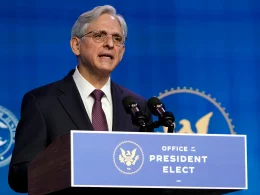Economic sanctions have long been a significant tool in the realm of international diplomacy, particularly evident during the Cold War era. During this period, financial sanctions were frequently employed by both the United States and the Soviet Union as a means to exert pressure and influence over other nations without resorting to military conflict. These sanctions served as a non-violent method to achieve strategic objectives, such as curbing the spread of communism or limiting the influence of Western capitalism in various regions. The use of economic sanctions during the Cold War exemplified how nations could leverage economic power to shape global political dynamics and achieve diplomatic goals.
Since the 20th century, economic sanctions have continued to play a pivotal role in shaping modern international diplomacy. The evolution of global trade networks and the interconnectedness of economies have made economic sanctions an even more powerful tool for influencing the behavior of nations. Sanctions can target specific industries, financial institutions, or individuals, making them a versatile and adaptable instrument in the diplomatic arsenal. The ability to impose economic pressure without direct military intervention has made sanctions a preferred method for addressing issues such as nuclear proliferation, human rights abuses, and territorial disputes.
Mechanisms of imposing economic sanctions

Economic sanctions are implemented through a variety of mechanisms, each designed to exert pressure on the targeted nation and influence its diplomatic decisions. These mechanisms can include trade restrictions, asset freezes, travel bans, and financial sanctions. By limiting a nation’s access to international markets and financial systems, economic sanctions can create significant economic hardships that compel the targeted government to alter its policies or engage in negotiations. The strategic use of economic sanctions allows nations to shape international diplomacy by leveraging their economic power to achieve specific objectives.
Diplomacy is often heavily influenced by the imposition of targeted economic sanctions on nations. When a country faces economic sanctions, it is forced to reevaluate its diplomatic strategies and seek alternative alliances or negotiations to mitigate the impact. For example, a nation under sanctions may seek to strengthen its relationships with non-sanctioning countries or international organizations to gain economic support and political backing. The influence of economic sanctions on diplomacy is evident in how nations adjust their foreign policies and diplomatic engagements in response to the economic pressures imposed by the international community.
Case studies of successful sanctions
One notable example of economic sanctions influencing nuclear diplomacy success is the case of Iran. The international community, led by the United States and the European Union, imposed a series of stringent economic sanctions on Iran to curb its nuclear program. These sanctions targeted key sectors of the Iranian economy, including oil exports and financial transactions, creating significant economic strain. The pressure from these sanctions ultimately led Iran to engage in diplomatic negotiations, resulting in the Joint Comprehensive Plan of Action (JCPOA) in 2015. This agreement marked a significant achievement in nuclear diplomacy, demonstrating the effectiveness of economic sanctions in achieving diplomatic objectives.
Another successful case of economic sanctions is the international effort to end apartheid in South Africa. During the 1980s and early 1990s, a global movement emerged to impose economic sanctions on South Africa in response to its apartheid policies. These sanctions included trade embargoes, divestment campaigns, and financial restrictions. The economic pressure from these sanctions, combined with domestic and international activism, played a crucial role in dismantling the apartheid regime and transitioning South Africa towards a more inclusive and democratic society. The success of these sanctions highlights how economic measures can support diplomatic efforts to address human rights abuses and promote social justice.
Impact on targeted nations
Economic sanctions can significantly alter the diplomatic strategies of targeted nations. When faced with economic sanctions, governments often need to reassess their foreign policies and seek ways to mitigate the economic impact. This can involve engaging in diplomatic negotiations to lift or ease the sanctions, seeking alternative trade partners, or implementing domestic economic reforms. The need to address the economic challenges posed by sanctions can lead to shifts in a nation’s diplomatic priorities and strategies, as it seeks to navigate the complex landscape of international relations under economic pressure.
The financial impacts of economic sanctions can also drive substantial changes in diplomacy. The loss of access to international markets, financial systems, and foreign investments can create economic hardships that compel governments to seek diplomatic solutions. For instance, a nation facing severe economic sanctions may prioritize diplomatic negotiations to reach agreements that can lead to the lifting of sanctions. The financial strain caused by sanctions can thus serve as a catalyst for diplomatic engagement and compromise, as nations seek to alleviate the economic burdens imposed by the international community.
Role of international organizations
International organizations play a crucial role in the enforcement and implementation of economic sanctions, using them as tools of international diplomacy. Organizations such as the United Nations, the European Union, and the World Trade Organization have established mechanisms for imposing and monitoring economic sanctions on member states. These organizations provide a multilateral framework for coordinating sanctions efforts, ensuring that economic measures are applied consistently and effectively. By leveraging the collective power of member states, international organizations can enhance the impact of economic sanctions and strengthen their role in shaping global diplomacy.
The enforcement of financial sanctions by international organizations is instrumental in shaping diplomacy on a global scale. These organizations can impose sanctions in response to violations of international law, human rights abuses, or threats to global security. By doing so, they send a clear message to the targeted nation and the international community about the consequences of certain actions. The ability of international organizations to enforce economic sanctions adds a layer of legitimacy and coordination to the use of sanctions as a diplomatic tool, reinforcing their effectiveness in achieving diplomatic objectives.
Economic sanctions as a tool for negotiation

Economic sanctions can significantly alter the balance of diplomacy by creating leverage for the imposing nation or coalition. When a country faces financial sanctions, it often finds itself in a weakened bargaining position, as the economic pressure can create a sense of urgency to resolve the underlying issues. This leverage can be used by the imposing nation to push for diplomatic concessions, policy changes, or compliance with international norms. The strategic use of financial sanctions as a tool for negotiation allows nations to achieve their diplomatic goals without resorting to military conflict, highlighting the power of economic measures in shaping international relations.
Diplomacy often relies on the leverage provided by economic sanctions to achieve desired outcomes. The threat or imposition of sanctions can serve as a powerful incentive for targeted nations to engage in diplomatic negotiations and make concessions. For example, a country facings financial sanctions may be more willing to enter into peace talks, agree to disarmament measures, or comply with international regulations to have the sanctions lifted. The leverage created by economic sanctions can thus facilitate diplomatic dialogue and compromise, contributing to the resolution of conflicts and the promotion of international stability.
Challenges and criticisms
Despite their effectiveness, economic sanctions can also strain diplomatic relations between countries. The imposition of sanctions can create tensions and animosities, as the targeted nation may perceive the sanctions as an infringement on its sovereignty or an act of aggression. This can lead to a deterioration of diplomatic ties and hinder efforts to engage in constructive dialogue. Additionally, the use of financial sanctions can sometimes provoke retaliatory measures, further escalating conflicts and complicating diplomatic relations. The potential for strained diplomatic relations is a significant challenge that must be carefully considered when implementing financial sanctions.
Another major criticism of economic sanctions is that they may lead to unintended economic hardships on civilians. While sanctions are intended to target governments and key economic sectors, the broader population often bears the brunt of the economic impact. Sanctions can result in shortages of essential goods, inflation, unemployment, and a decline in living standards. These hardships can exacerbate humanitarian crises and create additional challenges for diplomatic efforts. The unintended consequences of financial sanctions on civilians highlight the need for careful consideration and targeted implementation to minimize collateral damage and ensure that the primary objectives of the sanctions are achieved.
Future trends in sanctions and diplomacy
Looking ahead, economic sanctions are likely to continue influencing diplomatic negotiations and alliances. As global economic interdependence increases, the ability to impose targeted and effective sanctions will remain a valuable tool for nations seeking to influence international behavior. The strategic use of financial sanctions will likely evolve to address emerging challenges such as cyber threats, environmental issues, and new forms of geopolitical competition. The future of sanctions and diplomacy will be shaped by the ability of nations to adapt to changing global dynamics and leverage financial sanctions to achieve their diplomatic objectives.
Diplomacy will also continue to adapt to the strategic use of economic sanctions. Nations will need to develop sophisticated strategies to navigate the complexities of international relations under the influence of sanctions. This may involve building coalitions, engaging in multilateral diplomacy, and leveraging international organizations to coordinate sanctions efforts. The evolving landscape of financial sanctions will require diplomats to be adept at balancing economic pressures with diplomatic engagement, ensuring that sanctions are used effectively to promote peace, security, and international cooperation. The future of diplomacy will be shaped by the ongoing interplay between financial sanctions and diplomatic strategies, highlighting the enduring importance of financial sanctions in shaping global affairs.












